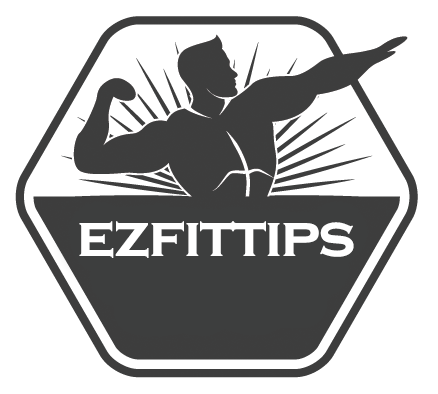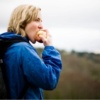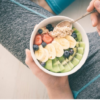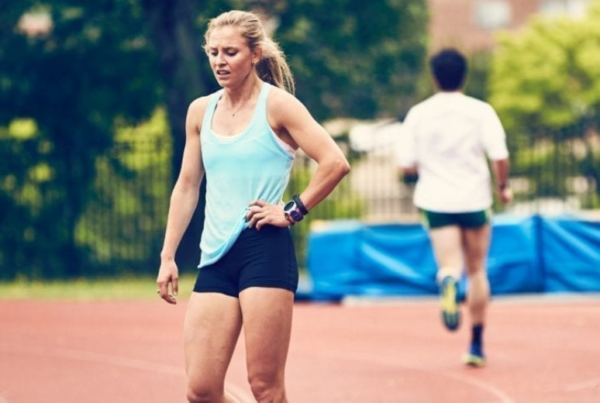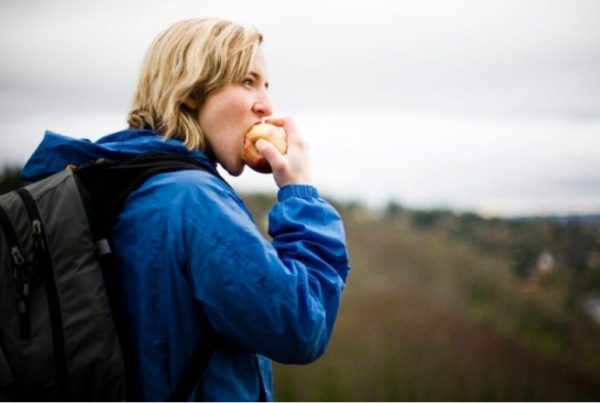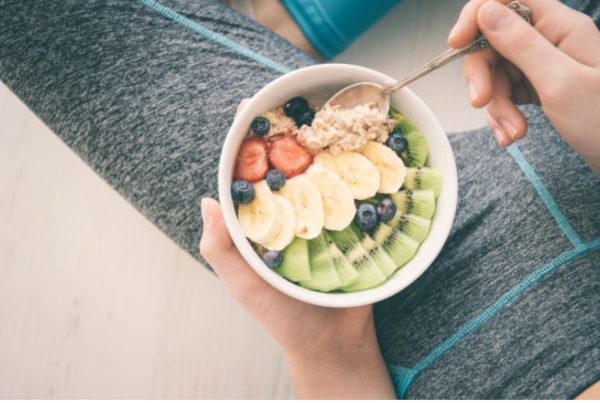“Wait, you do what? Does that really work?”
That’s exactly the response I get when I tell non-dietitian friends about some of the strange food tricks I occasionally adopt to kickstart weight loss. Let’s face it, athletes will try anything — from the wackiest recovery methods to new tech gadgets and food trends — all in hope of lean tissue gains, shedding extra weight and increasing speed, strength and overall performance.
There are plenty of food fads, trends and gimmicks that make seemingly absurd claims to boost health, lose weight, clear skin, etc. … While many of those are claims are just plain silly (if not completely dangerous), there are a few tricks that may actually work.
Here, we’ll sort through a few of these rare nutrition tricks that can be backed up by science:

Simply drinking two cups of cold water before your main meals can help exacerbate weight-loss efforts due to two factors. First, 16 ounces of water can potentially ramp up metabolism which helps process the upcoming meal more efficiently. Second, the amount helps to create a full sensation which limits the amount of food you’re apt to consume. When it comes to drinking warm or cold water, try a mix of both. Cold water rehydrates the body better and, for athletes who sweat often, this is key for boosting recovery. Warm water can improve blood flow and help promote a good digestive environment.

While it isn’t the most appetizing of snacks, downing protein powder and water is actually a good way to stave off cravings and build lean tissue. Protein helps keep the body satisfied longer and muscles are able to better utilize protein when it comes in smaller doses throughout the day. These two factors make a scoop of powder and water a good option for a midday snack.

Or any broth really. Research indicates consuming a portion of soup before a meal can help reduce the number of calories consumed at that meal. Bone broth is a great option for athletes because the collagen in the broth can potentially help with joint and tendon strength as well.

That’s right, eggs (the yolk and all) are back on the list of healthiest foods, and the best time to consume them may be first thing in the morning. People who nosh on morning meals higher in protein go on to consume fewer calories all day long. An added bonus for eggs is the choline-rich yolks help stimulate acetylcholine production which helps activate muscle tissue.

Green bananas? Yellow? Brown? The ripeness of your fruit can change the benefit. For example, eating bananas that are green (less ripe) means you’ll consume less sugar. As the fruit ripens, it becomes sweeter because the sugars develop more. If you need a boost before or during a workout, choose a ripe yellow or, if you’re OK with it, brown version. If you are having a midday snack, a less ripe option has a better health impact because it delivers more fiber and less fast-acting sugar.

Another reason to meal prep in advance: Cooking, cooling and then reheating pasta makes the dish less likely to affect blood sugar levels. This is good news for athletes looking to eat more carbohydrates without worrying about increased cravings or energy crashes. This multistep process creates resistant starch — enough to potentially reduce the insulin spike by 50%.

Going 12–16 hours without food may actually be good for your body as it helps regulate hunger hormones, blood glucose and natural circadian rhythms. Start by limiting your food intake to 12 hours a day. Depending on your schedule of physical activity, that might be enough for benefits. Less demanding training routines can work to further limit intake to 8 hours a day. Keep in mind this type of fasting is about time restriction, and you should aim to consume a full, balanced diet within your ‘eating window’.

If you tend to crave a dessert or second serving when you know you’re truly full, simply pop a piece of gum in your mouth, brush your teeth or even floss. Simply paying attention to your oral hygiene and creating a clean mouth sensation after a meal helps reduce the urge to eat more.

Documenting your meal may seem silly, but the act can really improve your food habits. By pausing to snap a photo, you take a second to appreciate the food you’re about to consume instead of just devouring it. The best food photos tend to be loaded with colors, be smaller in portion and include more plant-based foods (the proof is on Instagram) and these things are all better for the quality of your diet.

Yep, that’s right, whether you’re about to eat an apple or chocolate, before you take a bite, take a big whiff of your food. Sniffing food can trick the brain into feeling satisfied before you’ve even indulged. You might look weird doing this, but you also look weird wearing compression socks everywhere, so just do you.

The color blue can actually take your focus away from food. Scientifically, eating in blue lighting may decrease appetite by making food appear less appealing. Of course, the current craze of stunningly pretty blue algae-hued lattes might be working against this trick’s viability — not to mention, who doesn’t love blueberries.

Studies have shown that having a visual reminder of how much you’ve consumed leads to stopping sooner. To reap this benefit, choose foods that leave visual evidence like shell-on shrimp, shell-on pistachios, hard candy in wrappers or bone-in chicken wings, then instead of tossing the inedible parts, place them on a plate next to you so you can have visual cues of how much you’ve consumed. An added benefit of having to remove shells and wrappers is it takes longer, so you’re forced to eat slower and may register satiation sooner.
- READ MORE: 5 Healthy Lifestyle Hacks For Busy People
While the above tricks can potentially help provide small gains, the best thing you can do is consume a whole-food, balanced diet and work with a professional to determine a personalized diet approach to fit your individual needs.
